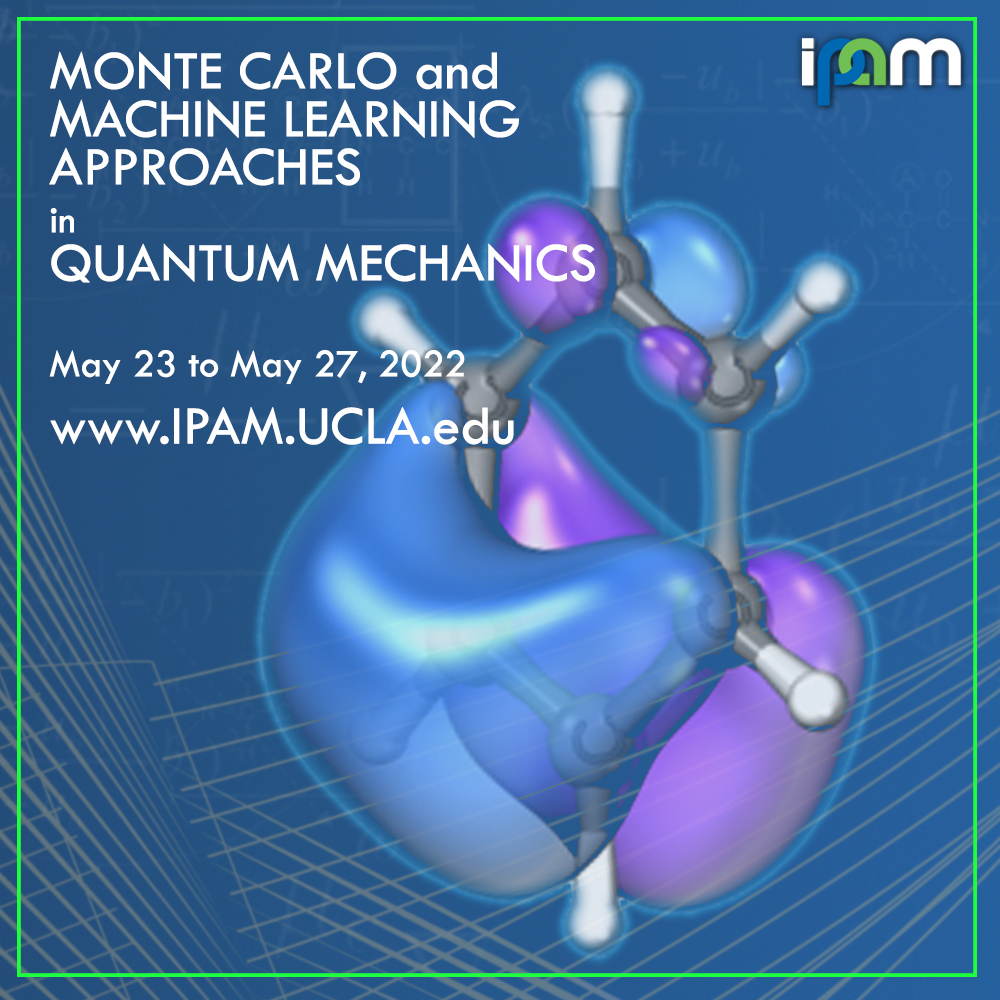Mark Tuckerman - Quantum time correlation functions in an open-chain path integral distribution
Presenter
May 26, 2022
Abstract
Recorded 26 May 2022. Mark Tuckerman of New York University Chemistry and Courant Institute presents "An exact formulation of quantum time correlation functions in terms of an open-chain path integral distribution" at IPAM's Monte Carlo and Machine Learning Approaches in Quantum Mechanics Workshop.
Abstract: One of the major outstanding challenges in computational chemistry is the calculation of thermal quantum time correlation functions in condensed phases. Of the methods most commonly employed, semi-classical approaches generally require the generation of a very large number of trajectories with a high associated computational overhead. Alternatively, the popular centroid and ring-polymer MD algorithms are accurate for linear operators but degrade for non-linear operators, and routes to systematic improvement of these methods are not obvious. In this talk, I will introduce a formally exact formulation of quantum time correlation functions in terms of open-chain Feynman path integrals that can be sampled using a Monte Carlo or molecular dynamics algorithm. Starting with the symmetrized version of the correlation function expressed as a discretized path integral, a change of integration variables, often used in the derivation of trajectory-based semiclassical methods, is introduced. In particular, a transformation to sum and difference variables between forward and backward complex-time propagation paths. It can be shown that a formal integration over the path-difference variables yields a function of the path-sum variables that can be shown to be positive definite, thereby allowing the problem to be formulated as a sampling problem in the path-sum variables. The manner in which this procedure is carried out results in an open-chain path integral (in the remaining sum variables) with a modified potential that is evaluated using imaginary-time path-integral sampling rather than requiring the generation of a large ensemble of trajectories. Consequently, any number of path integral sampling schemes can be employed to compute the remaining path integral, including Monte Carlo, path-integral molecular dynamics, or enhanced path-integral molecular dynamics. This approach constitutes a different perspective in semiclassical-type approximations to quantum time correlation functions. Practical approximation schemes are considered for implementing the approach, and the scheme is compared to the ring-polymer MD and thermal-Gaussian LSC-IVR approaches for a handful of example problems. Other formal considerations for problems such as rate theory calculations and electronic excitation spectroscopy are also discussed.
Learn more online at: http://www.ipam.ucla.edu/programs/workshops/workshop-iv-monte-carlo-and-machine-learning-approaches-in-quantum-mechanics/?tab=schedule
